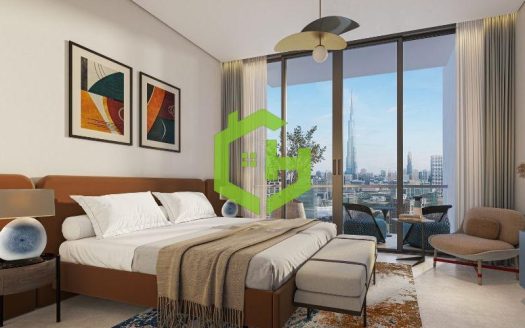Cultural Insights: Understanding the Business Environment in Dubai
Last Updated on April 24, 2025

As a real estate professional with over a decade of experience in Dubai’s dynamic market, I’ve witnessed firsthand how understanding local business culture can make or break international ventures. The UAE business environment offers incredible opportunities, but success here requires more than just capital and a good business plan. Let me share my practical insights into navigating Dubai’s unique business landscape.
The Foundation of Dubai Business Culture
Dubai’s business culture is a fascinating blend of traditional Arab values and modern international practices. During my first years here, I quickly learned that what works in London or New York might not necessarily work in Dubai. The UAE business environment operates on a different wavelength, where relationships often trump immediate business gains.
Time in Dubai flows differently when it comes to business. While modern office towers and lightning-fast internet might suggest a Western-style rushing pace, traditional meeting customs often involve extended coffee sessions and personal conversations before any business discussion begins. I’ve had meetings scheduled for 30 minutes that turned into 2-hour conversations about family, travel, and shared interests. These weren’t distractions from business – they were the foundation of future successful deals.
In Dubai’s corporate etiquette, the concept of “wasta” (personal connections) plays a crucial role. I remember losing a potential deal worth millions because another agent had stronger personal relationships with the client, despite offering less favorable terms. This taught me that investing time in relationship-building isn’t just nice to have – it’s essential for survival in this market.
The business opportunities in Dubai often emerge from these relationship networks. For example, many of my most successful property deals started not in formal meetings but during casual conversations at social events or even at the golf course. One particular client, who later invested in a $15 million commercial property portfolio, first approached me to ask about good schools for his children.
Mastering Dubai Professional Networking
Professional networking in Dubai operates on multiple levels, and understanding this structure has been crucial to my success. The city offers numerous formal and informal networking opportunities, each with its own unwritten rules and expectations.
Dubai’s networking scene is incredibly active, with multiple business councils and professional associations hosting regular events. The Dubai Chamber of Commerce alone organizes over 150 networking events annually, with participation fees ranging from free to AED 500 ($136) per event. However, the most valuable connections often happen in more informal settings. I’ve found that joining one of Dubai’s prestigious golf clubs, despite the hefty annual membership fees of AED 50,000-150,000 ($13,600-$40,800), can provide access to decision-makers you’d never meet in formal business settings.
The holy month of Ramadan presents unique networking opportunities through Iftar and Suhoor gatherings. These events, often hosted by major companies and costing anywhere from AED 200 to AED 1,000 ($54-$272) per person, combine traditional hospitality with business networking. I’ve closed some of my biggest deals during these periods, as the relaxed atmosphere and shared experience create stronger bonds than any boardroom meeting could.
Digital networking platforms are also gaining importance, but with a local twist. While LinkedIn is widely used, with over 3 million users in the UAE, platforms like Dubai Chamber’s Business Connect and the government’s DubaiNow app are becoming increasingly important for local networking. These platforms often provide access to exclusive government tenders and development projects that aren’t advertised elsewhere.
Essential Dubai Corporate Etiquette: A Practical Guide
Understanding Dubai’s corporate etiquette has saved me from countless potentially embarrassing situations. The rules here are a unique mixture of traditional Arab customs and international business practices, with some surprising nuances that can catch newcomers off guard.
Business meetings in Dubai follow their own rhythm. While punctuality is appreciated, don’t be surprised if your Emirati partner arrives 15-30 minutes late – this is often considered normal and not disrespectful. However, as a foreigner, you should always arrive on time. I’ve learned to use these waiting periods productively, often making valuable connections with other waiting visitors or catching up on local news with the office staff.
The business dress code in Dubai deserves special attention. Despite the desert heat, business attire remains formal. For men, dark suits are standard in most business settings, though you’ll rarely need to wear a tie except for government meetings. Women should dress conservatively but elegantly – knee-length dresses or pantsuits with covered shoulders are appropriate. During summer months (May-September), when temperatures regularly exceed 40°C (104°F), lighter fabrics are acceptable, but the formal appearance must be maintained.
Communication styles in Dubai business settings require careful calibration. Direct confrontation or criticism is rarely well-received. I once lost a potential AED 5 million ($1.36 million) deal because I too directly pointed out flaws in a property to a local business owner. I’ve since learned to couch negative feedback in softer terms and always offer solutions alongside criticisms.
The multicultural workplace in Dubai presents unique challenges and opportunities for expat business people. With over 200 nationalities working together, cultural misunderstandings are inevitable but manageable with the right approach.
Language barriers can be subtle but significant. While English is widely used in Dubai’s business environment, understanding basic Arabic greetings and business terms can open many doors. I’ve seen deals worth millions of dirhams swing in favor of professionals who made the effort to learn and use simple Arabic phrases. Key phrases like “As-salaam-alaikum” (Peace be upon you) and “Shukran” (Thank you) are essential, while more business-specific terms like “Al Safqa” (The deal) can demonstrate respect for local business customs.
The working week in Dubai recently shifted to Monday-Friday (previously Sunday-Thursday), with many companies operating shorter hours on Fridays. However, business hours during Ramadan change significantly, with most companies operating reduced hours (typically 6 hours per day) and many important decisions being made during evening hours after Iftar. I now schedule my most important meetings during Ramadan between 8 PM and 11 PM, when decision-makers are most accessible and receptive.
Understanding Dubai’s corporate hierarchy is crucial for successful business interactions. Decision-making often follows a more hierarchical pattern than in Western companies. I’ve learned to identify and respect these structures – for example, ensuring that initial presentations are made to the appropriate level of management, even if the final decision-maker isn’t present. This respect for hierarchy has helped me close deals ranging from AED 1 million to AED 50 million ($272,000 to $13.6 million).
Gender Dynamics in Modern Dubai Business
The role of gender in Dubai’s business environment is evolving rapidly, creating both opportunities and challenges for professionals of all backgrounds. Understanding these dynamics is crucial for successful business operations in the UAE.
Women’s participation in Dubai’s business sector has grown significantly, with the UAE ranking first in the Middle East for gender equality in the workplace. The government actively promotes women in business through initiatives like the Dubai Business Women Council, which offers membership starting at AED 500 ($136) annually and provides networking opportunities specifically for female entrepreneurs. I’ve noticed a significant increase in female clients and business partners over the past five years, with women now representing about 40% of my high-net-worth investor portfolio.
Meeting etiquette regarding gender requires careful attention. In traditional settings, male professionals should wait for female Emirati counterparts to initiate handshakes. I’ve developed a practice of greeting with a slight bow and a hand over the heart when meeting female Emirati clients, which has been well-received. For business cards, always present them with your right hand, regardless of gender, and take a moment to read any card you receive before putting it away.
Professional conduct in Dubai often varies depending on the setting and the nationalities involved. In more traditional companies, gender segregation might still be practiced in some settings, such as separate meeting rooms or prayer areas. However, in modern international companies, especially in free zones like DIFC or Dubai Media City, the environment is typically more similar to Western offices.
The Future of Business Opportunities in Dubai
Dubai’s entrepreneurship culture continues to evolve, creating exciting opportunities for both local and international investors. The government’s commitment to innovation and business development has created a unique ecosystem for growth.
Recent changes in UAE business regulations have opened up new possibilities. The introduction of 100% foreign ownership in mainland companies (previously limited to free zones) has created opportunities in sectors previously restricted to local partnership. Golden Visas for investors, starting from investments of AED 2 million ($544,000), provide long-term residency options and have stimulated the high-end property market significantly. I’ve seen a 30% increase in investment inquiries since these changes were implemented.
Local business partnerships in Dubai remain valuable despite regulatory changes. Through my network, I’ve observed that companies with strong local connections tend to grow 40% faster than those operating in isolation. The government’s commitment to supporting business is evident in initiatives like the Dubai Future Accelerators program, which offers funding of up to AED 500,000 ($136,000) for innovative startups.
Cross-cultural management in Dubai continues to evolve with the city’s growth. The expansion of specialized free zones has created unique opportunities in various sectors. For example, Dubai CommerCity, focused on e-commerce, offers turnkey solutions starting from AED 50,000 ($13,600) annually, while Dubai Multi Commodities Centre (DMCC) remains a global hub for commodity trading with setup costs ranging from AED 15,000 to AED 50,000 ($4,080-$13,600).
Understanding Dubai’s cultural business norms isn’t just about avoiding mistakes – it’s about maximizing opportunities in one of the world’s most dynamic business environments. The key to success lies in combining respect for traditional values with an appreciation for Dubai’s forward-thinking approach to business development.








